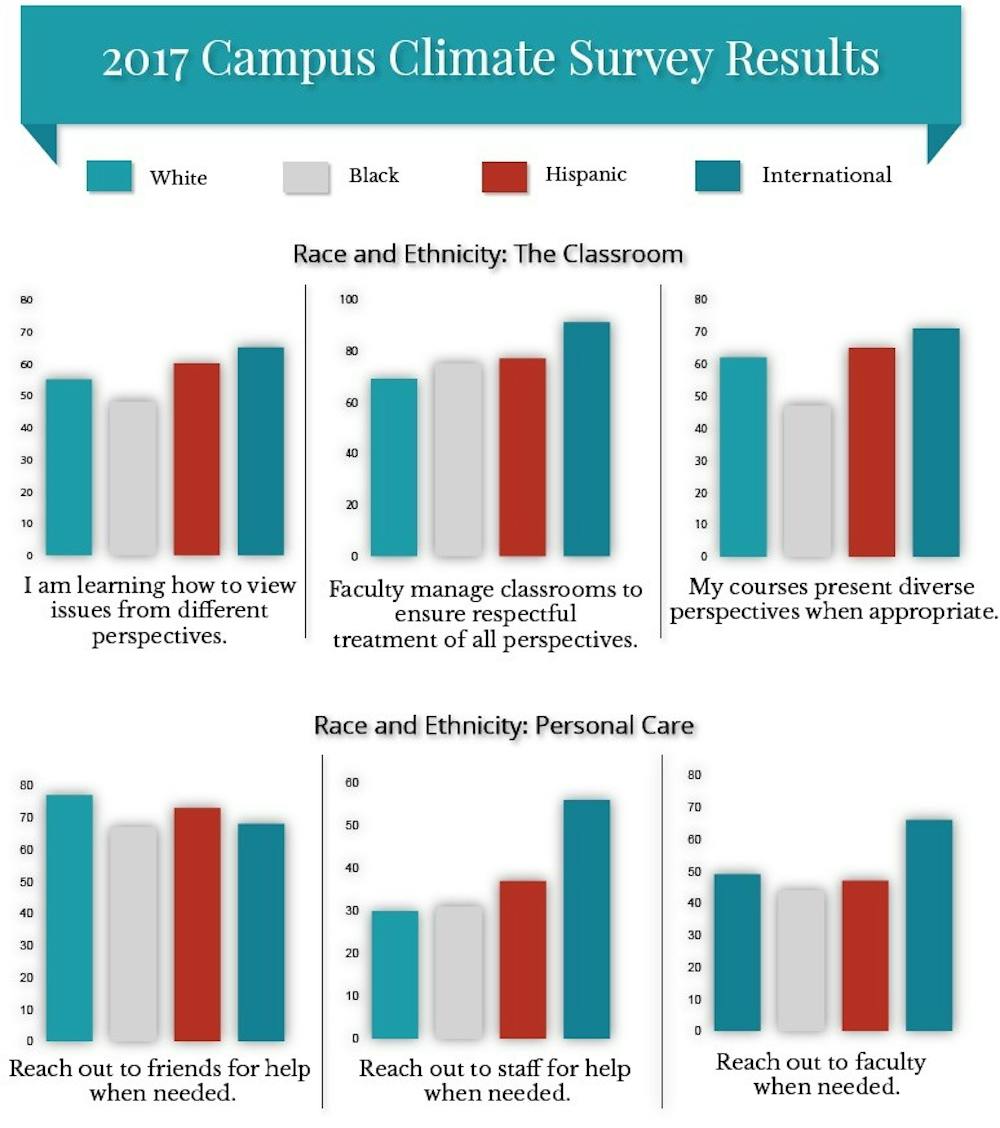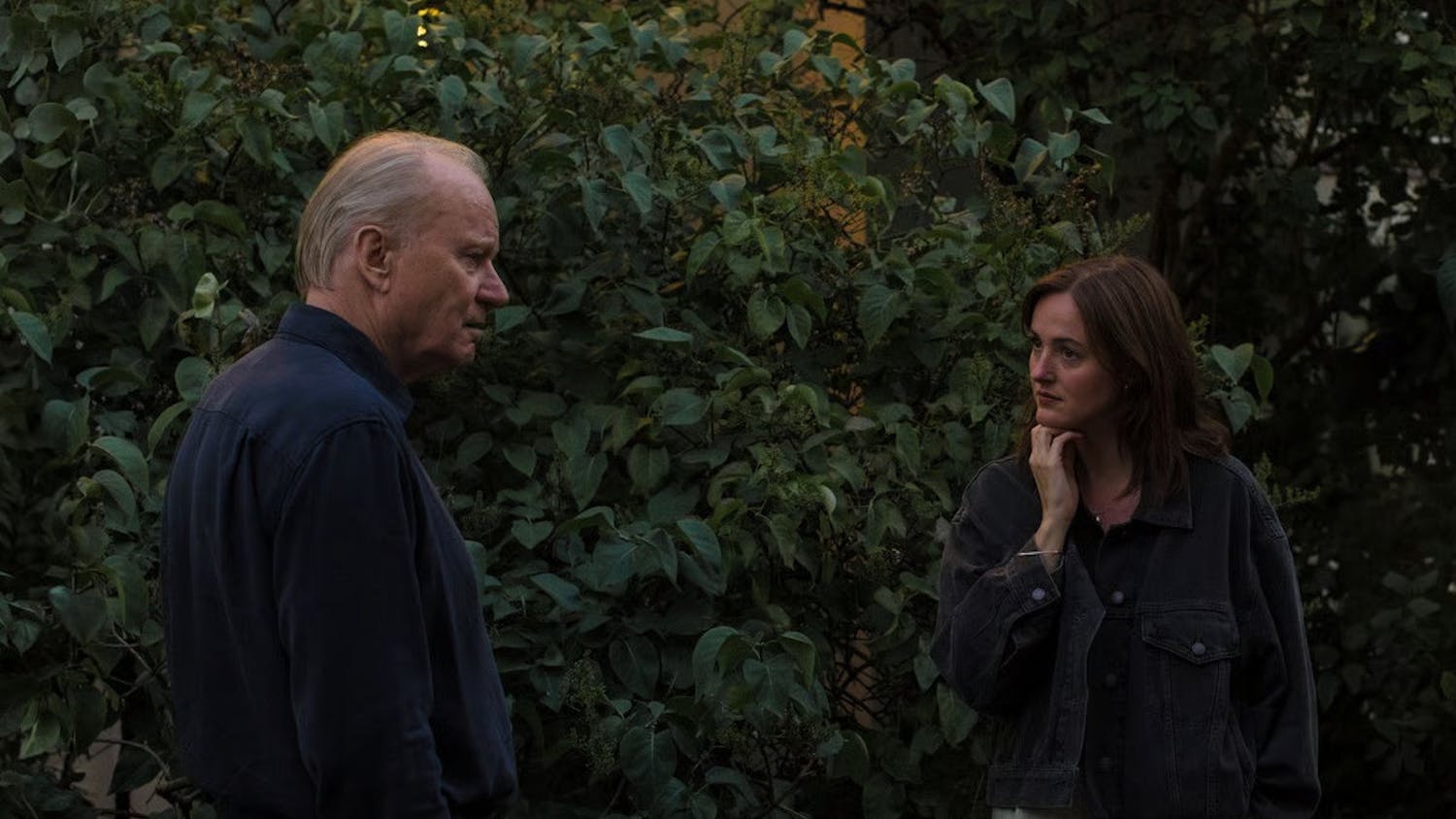International students -- more than any other group of students on campus -- believe that the University is committed to creating an environment where everybody feels like they belong, according to results of a campus climate survey released in October.
63 percent of international students responded “almost always” or “most of the time” when asked if “American University is committed to creating a campus community where everyone has a sense of belonging.” Compare that to 34 percent for black students, 52 percent for Hispanic students and 57 percent for white students.
Additionally, 63 percent of international students say their peers are committed to creating a welcoming environment. That’s eight percentage points higher than the average of 55 percent.
“I think first impressions play a really big role,” said Shams El-Adawy, president of the International Student Association. “It plays a big role in how you’re immersed for the first few days and few weeks, and for me it was a positive one, from how I was welcomed from the people who work here in the international office, and the international students who were also coming in with me.”
Sara Bendoraitis, the director of programming, research and advocacy for the Center for Diversity and Inclusion, said she was surprised by the high approval numbers from international students on community building.
Although Bendoraitis doesn’t work with international students primarily, she said that their incoming student orientation is very important for them. She said it models freshman orientation, known as Eagle Summit, with some key differences.
“There’s a lot about culture and what it means to be in the United States and how that may be different from their home culture,” Bendoraitis said. “And they do it in a way that I think is a little more in-depth and is very different in the way that we do with domestic students coming into the institution and how they’re oriented.”
This helps international students feel more connected to AU’s message of diversity and inclusion, Bendoraitis said.
“They feel a greater sense of connection in that a conversation about culture and diversity and inclusion is in the forefront for them compared to the general population of students,” she added.
When she arrived in America to start school, El-Adawy said AU made an effort to make her feel welcome and give her a “nice community feeling.” She said her orientation experience gave her a solid foundation for her to fall back on.
“As it went on, there were times where it hasn’t always been [welcoming], but I would also just go back to that feeling and the people who made me feel welcome and it felt fine,” she said. “There are times, and I think this is with anybody, where you feel like it’s not your place. But I think that happens to everyone.”
George Khnouf came to AU from Amman, Jordan. Now a senior in the Kogod School of Business, his first days at AU did not go as expected.
“I had no idea what to do,” Khnouf said. “I wasn’t really given any information about an orientation for international students. I ended up staying in my room and wandering around my floor, because I was feeling a bit overwhelmed.”
“But everything worked out,” Khnouf continued. “I ended up meeting all of my best friends that way, just walking around my floor.”
Although Khnouf’s freshman year did not start positively, he still felt supported by the people who convinced him to come to AU. Evelyn Levinson, AU’s international admissions director, first met Khnouf when she came to his school on a recruitment trip.
“I’ve known her since the tenth grade,” he said. “She checked on me a lot and helped my mom with the college process and all. She was a big help.”
56 percent of international students are “almost always” or “most of the time” likely to reach out to a staff member for help, according to the campus climate survey. 66 percent answered the same when asked about asking faculty members for help.
James Choi, the associate director of immigration and compliance for International Students and Scholar Services (ISSS), said one of the factors that contributes to international students feeling supported by the University is their office’s open-door policy.
“Whenever you need us, come and see us,” Choi told The Eagle by phone. “That’s our office approach.”
Choi said that his office’s orientation introduces international students to campus life and tells them that ISSS is their “home away from home.”
“From that moment, we try to be family, our office, and we tell them we are always supporting them and if they have issues please come talk to us,” Choi said.
Through the office’s Language Exchange Program, ISSS matches international students with domestic students so that international students can practice their English. For example, if a Chinese student wants to practice English, they can be matched with a domestic student who wants to practice Chinese.
“At least once a week they meet on campus, and they can get to know each other, and that they can practice, teach and learn foreign language,” Choi said. “Through that opportunity, with a common goal of learning a foreign language, they can build friendships here on campus and fill the gap between international and domestic students.”
Choi, along with the rest of the staff in the ISSS office, have personal experiences as international students. Choi himself is from South Korea and has lived in multiple countries.
“Something as simple as ordering food over the phone in another country can be very difficult,” Choi said, recalling his time as a student in China. “That’s just a small example of the many things that international students have to adjust to.”
There’s a handful of basic services that ISSS provides for international students. For example, if an international student leaves the country, ISSS must provide authorization for the student to reenter the U.S. Choi said these mandatory practices give him an opportunity to meet in person with students.
And students also turn to the office when looking for post-graduation work in the U.S. Though she is concerned about post-graduation employment opportunities in the Trump era, Chelsey Yangqiansu Cao, founder and treasurer of the International Student Association, said AU is doing a good job supporting international students figure out their post-college plans.
“The University is doing everything they can to support international students,” Cao said. “But there’s nothing they can do with the current political climate.”
Regular interactions between the office and international students, Choi said, helps to explain why those students feel supported and expressed that in the campus climate survey.
“They’re not home. They’re here in the United States as a foreign student so they need to have some sort of support,” Choi said. “We try to be their best friends. I think that’s the reason.”
This article was published in The Eagle's December 2017 print edition. Julia Gagnon contributed reporting to this article.





